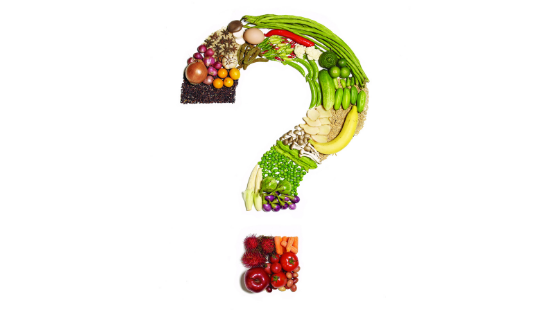
Is Drinking Coffee Bad For Me?

Legend has it that coffee was discovered around 850 A.D. in Ethiopia by a goat herder who observed that their animals were unusually lively after eating bright-red berries. Inside those berries were the coffee beans that later went on a global journey. Now, with more than 400 billion cups consumed every year, coffee is the world’s most popular beverage.
There has been a lot of research on the health benefits of coffee such as improved attention, focus, energy, motivation and neuroprotective effects.
But like all things – it is best to consume in moderation as drinking coffee or to much coffee might not be the best thing for you. Just like coffee has a ton of health benefits it also has some side effects that can be problematic for some people. You may want to make a self assessment to see if your coffee drinking could be impacting your health issues. Let’s have a look at some of the issues with drinking coffee or too much of it.
1. Increased Blood Pressure and Heart Rate
Caffeine is a central nervous system stimulant, so high or even regular consumption of caffeine may create anxiety, restlessness, irritability, insomnia. In fact, caffeine-induced anxiety disorder is one of four caffeine-related syndromes listed in the Diagnostic and Statistical Manual of Mental Disorders (DSM), which is published by the American Psychiatric Association.
Extremely high daily intakes of 1,000 mg or more per day have been reported to cause nervousness, jitteriness and similar symptoms in most people, whereas even a moderate intake may lead to similar effects in caffeine-sensitive individuals.
Studies have found that higher caffeine intake appears to increase the amount of time it takes to fall asleep. It may also decrease total sleeping time. Coffee contains theophylline, which is known to disturb normal sleep patterns. Caffeine intake even six hours before bedtime has been shown to significantly disrupt sleep. (1)
2. Increased Blood Pressure and Heart Rate
Regular consumption of caffeine may create cardiac sensitivity – abnormal heart beats, tachycardia and palpitations, increased blood pressure and hypertension, especially in those that have atherosclerosis and heart disease. Although moderate coffee consumption is generally considered safe for heart health, acute ingestion can lead to short-term increases in blood pressure and heart rate, particularly in non-habitual drinkers or those with hypertension. (2)
3. Potential for Dependence and Withdrawal
Caffeine dependence is well-documented. Withdrawal symptoms—such as headaches, fatigue, irritability and even constipation —can occur in regular consumers who abruptly stop intake. Skipping or giving up coffee a person can expect to potentially feel worse before feeling better. (3)
4. Gastrointestinal Distress:
Coffee contains chlorogenic acid and N-alkanoyl-5-hydroxytryptamide, which have been shown to increase stomach acid production. Increase in gastric acid secretion may exacerbate symptoms of acid reflux or gastroesophageal reflux disease (GERD). (4). A study found that coffee beans that were roasted longer and at higher temperatures were less acidic, which means darker roasts tend to be less acidic than lighter roasts and switching to cold-brewed coffee is less acidic than hot coffee.
5. Bone Health Concerns
High coffee consumption has been associated with decreased bone mineral density in some studies, potentially increasing the risk of fractures in susceptible populations, especially in those with low calcium intake. (5) One study found a higher rate of bone loss in postmenopausal elderly women with caffeine intakes >300 mg/d than in those with intakes ≤300 mg/d. (6,7)
6. Loss of Nutrients
While coffee itself contains small amounts of essential nutrients like magnesium, potassium, and niacin, its effect on the absorption or excretion of other nutrients is of more concern. It can increase the excretion of the minerals calcium, magnesium, potassium, sodium, phosphate and zinc; and vitamins including B vitamins – particularly thiamin, and vitamin C. It may also reduce absorption of iron and calcium (especially when caffeine is consumed around mealtimes).
Coffee, especially when consumed with or shortly after meals, inhibits the absorption of non-heme iron (from plant sources), primarily due to its polyphenol content. (8) Some studies have suggested increased urinary excretion of magnesium and zinc with high caffeine intake, although evidence is less consistent. (9)
7. Caffeine Addiction
Studies suggest that although caffeine triggers certain brain chemicals similarly to the way cocaine and amphetamines do, it does not cause classic addiction the way these drugs do. (14) However, it may lead to psychological or physical dependency, especially at high dosages.
Even though caffeine does not seem to cause true addiction, if a person regularly drinks a lot of coffee or other caffeinated beverages, there’s a very good chance they may become dependent on its effects and as such when they miss there morning cup of joe those withdrawal symptoms (as mentioned earlier) kicks in.
8. Increased Urination
Increased urination is a common side effect of high caffeine intake due to the compound’s stimulatory effects on the bladder. Some people may notice that they need to urinate frequently when they drink more coffee or tea than usual.
As a chemical, caffeine increases production of urine, which means caffeine is a diuretic. But the Mayo clinic reports that most research suggests that the fluid (which is made up of more than 95% water) in caffeinated drinks balances the diuretic effect of typical caffeine level. So its diuretic effects are often too low to dehydrate you on its own. High doses of caffeine taken all at once may increase the amount of urine the body makes. This is more likely if you aren’t used to caffeine.
How Much Coffee Should I Drink?
The Food and Drug Administration (FDA) has stated that healthy adults should only consume about 3 to 5 cups (up to 400 milligrams) daily to avoid potentially dangerous or adverse side effects. It is also best to consume coffee away from food to avoid interference with digestion and nutrient absorption.
For special populations such as pregnant individuals: ≤200 mg/day is advised to reduce risk of miscarriage and low birth weight. (10)
Several individual factors influence how caffeine is processed, and thus what is considered a “safe” or tolerable dose such as genetics, (people with the liver enzyme CYP1A2 responsible for metabolizing caffeine are more susceptible to caffeine’s negative cardiovascular effects, such as hypertension or heart attack risk) (11); Age (older adults metabolize caffeine more slowly due to reduced liver enzyme activity); Sex (women metabolize caffeine more quickly when taking oral contraceptives or during pregnancy due to hormonal influences on liver enzymes) (12); Smoking increases caffeine clearance by up to 50% and Medications, including certain antibiotics and antidepressants, can either increase or reduce caffeine metabolism. (13)
Conclusion
Coffee is a complex beverage with both health-promoting and also potentially detrimental side effects. The key lies in moderation—generally considered to be 3–5 cups per day for most healthy adults or up to 400mg of caffeine. Individual tolerance, underlying medical conditions, and lifestyle factors may determine if coffee should be reduced or eliminated. To get the benefits of caffeine without undesirable effects, consider conducting an honest assessment of your sleep, energy levels, headaches, digestion and other factors that might be impacted by caffeine, and reduce your intake if needed.
References
- Drake, C., et al. (2013). Caffeine effects on sleep taken 0, 3, or 6 hours before going to bed. Journal of Clinical Sleep Medicine, 9(11), 1195–1200. https://doi.org/10.5664/jcsm.3170
- Mesas, A. E., et al. (2011). The effect of coffee on blood pressure and cardiovascular disease in hypertensive individuals: a systematic review and meta-analysis. American Journal of Clinical Nutrition, 94(4), 1113–1126. https://doi.org/10.3945/ajcn.111.016667
- Juliano, L. M., & Griffiths, R. R. (2004). A critical review of caffeine withdrawal: empirical validation of symptoms and signs, incidence, severity, and associated features. Psychopharmacology, 176(1), 1–29. https://doi.org/10.1007/s00213-004-2000-x
- Zhang, M., et al. (2013). Dietary habits and the risk of gastroesophageal reflux disease: a comparative study. Scandinavian Journal of Gastroenterology, 48(9), 936–941. https://doi.org/10.3109/00365521.2013.816130
- Hallström, H., et al. (2006). Long-term coffee consumption in relation to fracture risk and bone mineral density in women. American Journal of Epidemiology, 165(8), 901–908. https://doi.org/10.1093/aje/kwk058
- Rapuri, Prema B. et al. 2001. “Caffeine intake increases the rate of bone loss in elderly women and interacts with vitamin D receptor genotypes,” Am J Clin Nutr (November). http://ajcn.nutrition.org/content/74/5/694.full (accessed May 29, 2015)
- Heaney, R. P. (2002). Effects of caffeine on bone and the calcium economy. Food and Chemical Toxicology, 40(9), 1263–1270. https://doi.org/10.1016/S0278-6915(02)00094-7
- Morck, T. A., Lynch, S. R., & Cook, J. D. (1983). Inhibition of food iron absorption by coffee. American Journal of Clinical Nutrition, 37(3), 416–420. https://doi.org/10.1093/ajcn/37.3.416
- Nehlig, A. (2016). Effects of coffee/caffeine on brain health and disease: What should I tell my patients? Practical Neurology, 16(2), 89–95. https://doi.org/10.1136/practneurol-2015-001162
- American College of Obstetricians and Gynecologists (ACOG). (2010). Moderate caffeine consumption during pregnancy. Committee Opinion No. 462. https://www.acog.org/
- Cornelis, M. C., et al. (2006). Coffee, CYP1A2 genotype, and risk of myocardial infarction. JAMA, 295(10), 1135–1141. https://doi.org/10.1001/jama.295.10.1135
- Abernethy, D. R., & Todd, E. L. (1985). Impairment of caffeine clearance by chronic use of low-dose oestrogen-containing oral contraceptives. European Journal of Clinical Pharmacology, 28(4), 425–428. https://doi.org/10.1007/BF00606601
- Berthou, F., et al. (1992). Effect of smoking on caffeine metabolism. Clinical Pharmacology & Therapeutics, 52(5), 476–480. https://doi.org/10.1038/clpt.1992.181
- https://www.frontiersin.org/journals/behavioral-neuroscience/articles/10.3389/fnbeh.2017.00200/full










